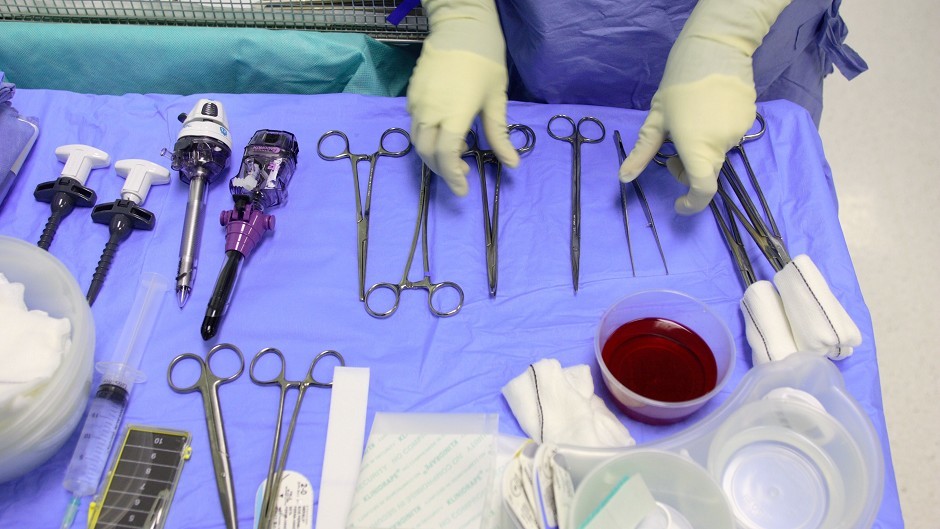The length of time between cancer patients initially showing symptoms to their doctor and receiving treatment may have no impact on their survival rates, according to an Aberdeen University study.
The research, which analysed 958 colorectal – also known as bowel cancer – patients between 1997 and 1998, discovered that delays of up to 20 weeks between first speaking to a doctor and getting treatment did not lead to poorer chances of living through the disease.
Dr Peter Murchie, of Aberdeen University, said: “Of course GPs recognise that waiting for tests and treatment, particularly for cancer, causes anxiety and stress for patients and it is quite right that politicians, policy makers and staff in the health service have been focussed on this time factor, and keeping it to a minimum by introducing waiting time targets.
“The assumption has been made by policy makers and others that in patients with symptomatic colorectal cancer, the earliest possible diagnosis and treatment will improve survival rates.
“Our study shows that this may not be the case.”
The university team say that there is an argument for waiting time targets potentially causing negative effects on patients.
Dr Murchie added: “Because delays are viewed as critical, patients that present ‘alarm’ symptoms of cancer or possible cancer, such as rectal bleeding, are prioritised for rapid investigation and treatment.
“The vast majority of those patients won’t have cancer, and aren’t necessarily more likely to have cancer than people who present with vaguer symptoms such as an altered bowel habit.
“However the current system means that even if a GP strongly suspects someone with vaguer symptoms is more likely to have cancer, they probably won’t get seen ahead of someone with alarm symptoms.”
A Scottish Government spokeswoman said: “All Scottish Government health campaigns are shaped by advice from clinical experts and the Detect Cancer Early Programme has benefited from this, particularly in the decision to focus on the importance of bowel screening in early detection of cancer.
“When it comes to cancer, we are determined to take all the necessary action to promote earlier diagnosis, improve access to treatment and invest in staff and equipment.
“This commitment is helping us to treat more patients successfully than ever before.”
